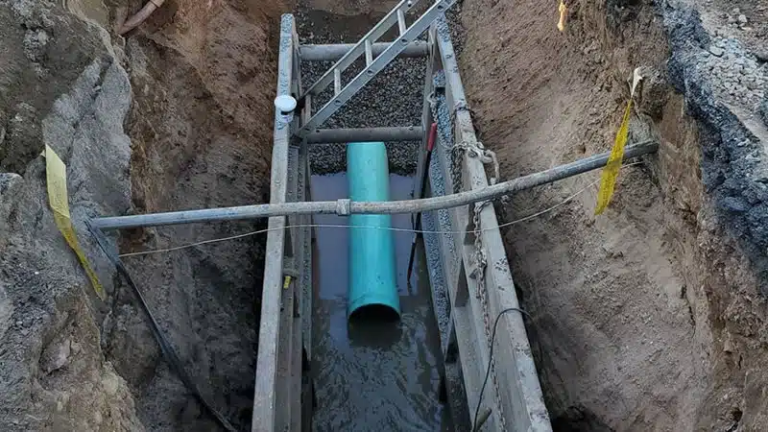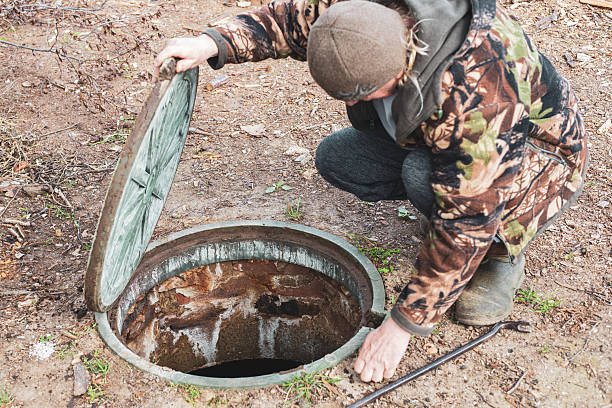Identifying Septic System Emergencies: 7 Critical Signs and Symptoms to Watch For
When it comes to septic systems, knowing the signs of trouble is vital. If you spot issues early, you can prevent big problems that cost time and money. This guide helps you identify septic system emergencies and what steps to take next.
Key Takeaways
- Watch for slow drains and gurgling sounds.
- Standing water around your drain field is a big red flag.
- Bad odors can mean serious problems.
- Don’t ignore bright green patches in your yard.
- Call a professional for help if you see these signs.
For more insights on maintaining your septic system, consider checking out our guide on septic tank filter inspections.
Understanding Your Septic System
Your septic system is an important part of your home. It treats waste from your toilets, sinks, and showers. Knowing how it works can help you spot problems.
A typical system has a septic tank and a drain field. Wastewater flows into the tank, where solids settle at the bottom. The liquid then moves to the drain field to soak into the ground. This process keeps your home safe from waste.
How Does a Septic System Work?
| Component | Function | Maintenance Tips |
|---|---|---|
| Septic Tank | Holds and breaks down waste | Pump every 3-5 years |
| Drain Field | Disperses treated wastewater into the ground | Keep it clear of heavy objects |
| Leach Lines | Distributes liquid waste into the soil | Regular soil testing |
Signs of a Failing Septic System
Slow Drains
If your sinks or toilets drain slowly, it could mean trouble. This often happens because of clogs in the system. When this occurs, it is not just annoying; it can lead to backups and spills.
Gurgling or Bubbling Sounds
Listen closely. Do you hear gurgling or bubbling noises when you drain water? This sound often comes from your pipes. It can mean air is stuck in the system. The air usually should move freely, but blockages can trap it.
Standing Water Near the Drain Field
If you see pools of water in your yard, check for a problem. This water might come from your septic system. It can mean the system is failing to drain properly. Standing water can be a health hazard and needs quick attention.
Bad Odors
Strong smells around your septic tank or yard are not normal. These odors can mean the tank is full or damaged. You may also smell it in your home if there are serious issues. It’s best not to ignore these smells.
Bright Green Grass
Do you notice certain parts of your lawn are greener than others? This can happen when wastewater leaks into the soil. Grass may look lush above the drain field, but this is often a sign of trouble.
Frequent Backups
If your toilets and sinks back up often, it’s a major sign of trouble. Backups can become messy and stressful. This can happen for several reasons, such as clogs or a full tank.
Water Pooling in Your Basement
Water in your basement is a big deal. If this happens, it could mean that your septic system is backing up into your home. This is a serious problem that needs immediate help.
List of Common Septic System Issues
- Clogs: Often caused by flushing inappropriate items.
- Overloading: Occurs during heavy water use or storms.
- Poor Design: Systems not installed correctly can lead to failures.
- System Damage: Roots or heavy objects can block pipes.
What Causes These Problems?
Clogs
Clogs are one of the main reasons for septic issues. These can happen from flushing wrong items, like wipes or grease. When these items build up, they can block the flow of wastewater.
System Overload
Every septic system has a limit. If you use more water than your system can handle, it can become overloaded. This can happen during heavy rains or large gatherings.
Poor Design or Installation
Sometimes, a system is not designed or installed correctly. This can lead to many problems. A poorly designed system may not handle waste well, causing backups.
Damage to the System
Pipes can break or become blocked due to roots or heavy equipment. When this happens, water cannot flow out of the tank properly. Damage needs quick attention to prevent more issues.
Can a Failing System Contaminate Water?
Yes, a failing septic system can contaminate local water sources. If wastewater leaks into the ground, it can reach wells and streams. This can pose serious health risks. Contaminated water can lead to dangerous bacteria getting into drinking water.
How to Prevent a Failure
Regular Maintenance
Regular maintenance is key to keeping your septic system healthy. Have your septic tank pumped every 3 to 5 years. This prevents buildup and helps avoid major issues.
Know What Not to Flush
Be careful with what you flush. Avoid flushing items like wipes, grease, or chemicals. These can harm your system. Stick to toilet paper only.
Watch Your Water Use
Be mindful of your water usage. Fix leaks and don’t use too much water at once. This helps prevent overloading your system.
Keep the Area Clean
Keep the area around your septic tank clear of heavy items. Cars, trucks, and large equipment can damage your system. Make sure your yard is safe for your septic system.
What to Do If You See Signs of Trouble
If you notice any of the above signs, call a septic professional right away. They can inspect your system and find the cause of the problem. Here’s what to expect:
Inspection
A professional will check your entire system. They will look for clogs, broken pipes, or other issues. This helps them figure out what is wrong and how to fix it.
Repairs
Once they find the problem, they will explain what needs to be done. They may need to pump your tank, fix pipes, or replace parts of the system.
Emergency Services
If you notice serious signs, like backups or standing water, call for emergency services. Quick action can save you from big costs later.
For more information about reliable septic system inspections, visit our page on thorough septic inspections.
Conclusion
Knowing the signs of a septic system emergency can help you avoid big problems. Slow drains, bad odors, and standing water are all signs that something is wrong. If you notice any of these issues, don’t wait. Call a professional who can help with fast and reliable service. Regular maintenance and being careful with what you flush can keep your system in good shape.
By keeping an eye on your septic system and being proactive, you can protect your home and health. Remember, it’s always better to check and be safe rather than wait and hope for the best. If you notice any signs, contact a trusted septic service in Middletown, New York, right away. Your home will thank you!
Additional Resources
| Maintenance Task | Frequency | Benefits |
|---|---|---|
| Tank Pumping | Every 3-5 years | Prevents buildup and backups |
| System Inspection | Every 1-2 years | Identifies potential issues early |
| Drain Field Maintenance | Every 1-3 years | Ensures proper drainage and functionality |


